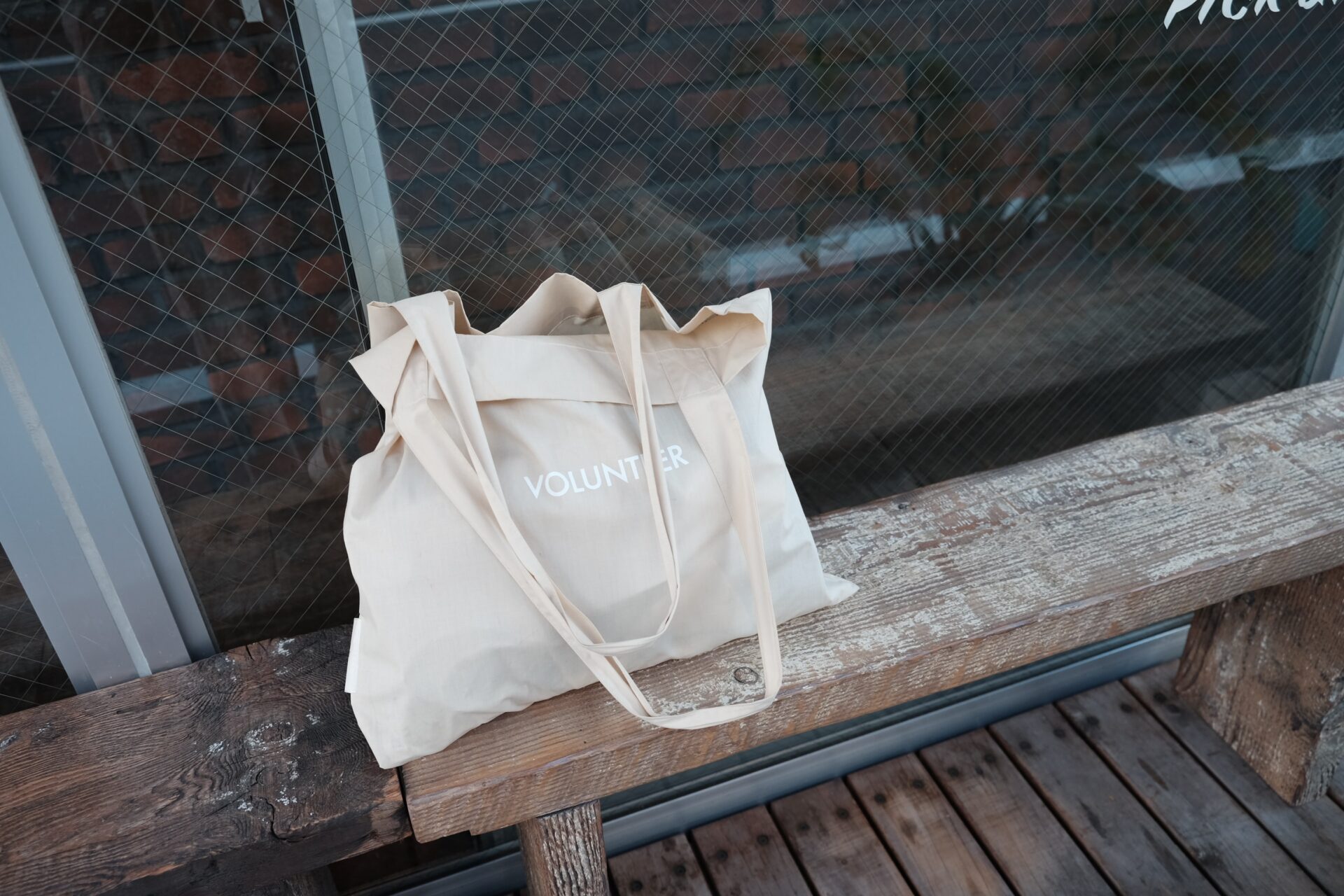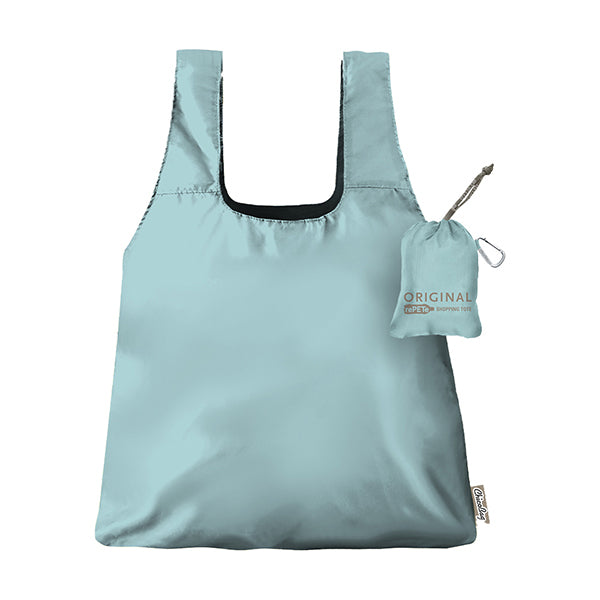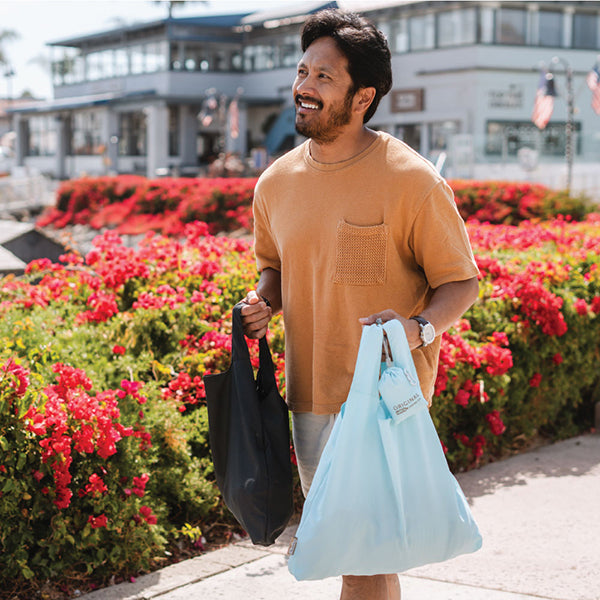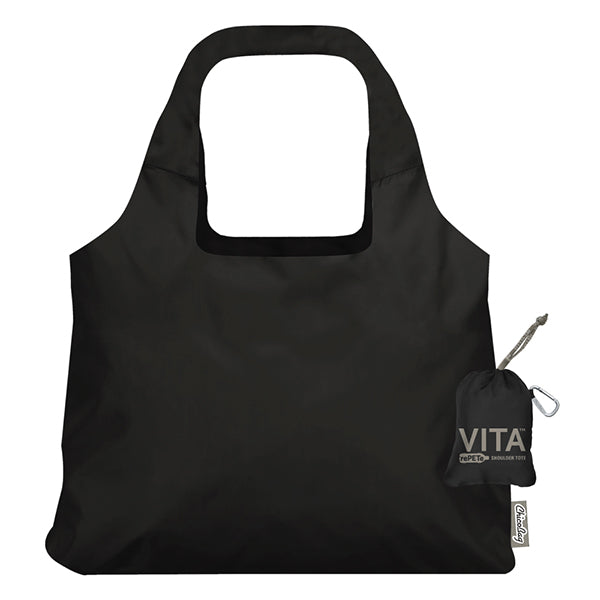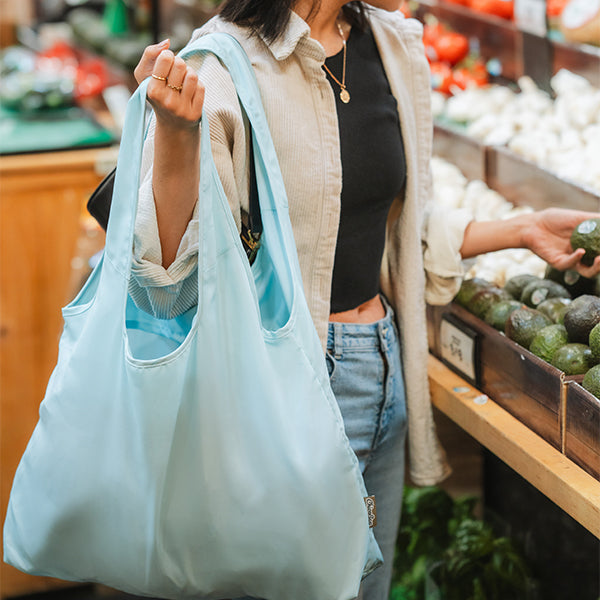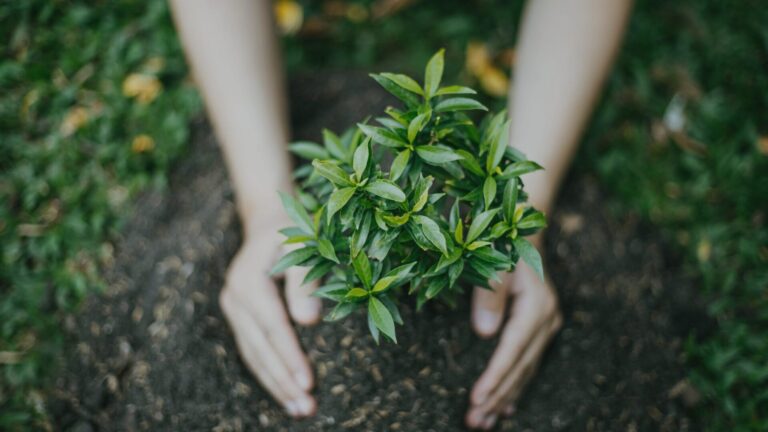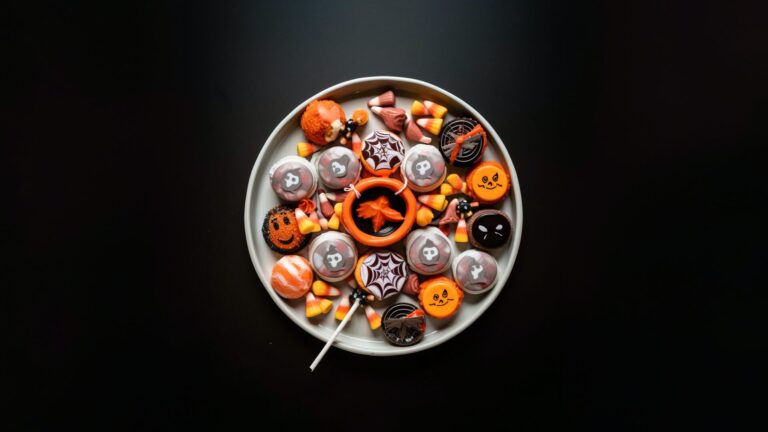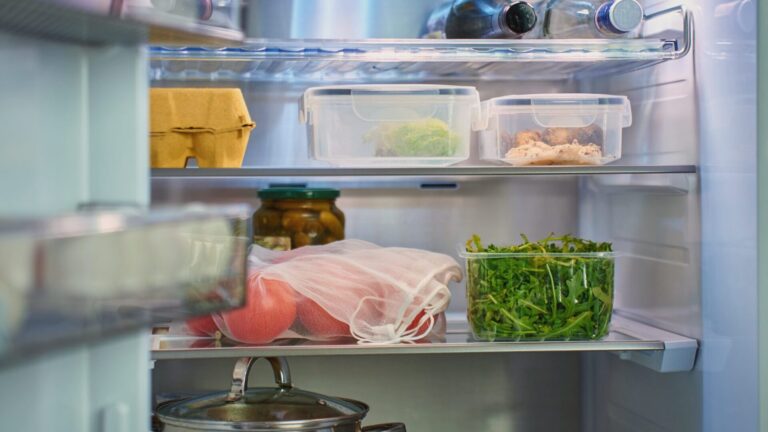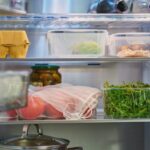There’s a certain satisfaction in reaching for your reusable bag as you head out the door. It’s become second nature—a small ritual that somehow makes the day feel a little more intentional. But if you’ve ever stood in front of a display of shopping bags, overwhelmed by the sheer variety of sizes, materials, and styles, you’re not alone.
I’ve been there myself. I’ve bought bags that looked perfect in the store, only to realize they didn’t quite fit my routine. Too bulky for a quick errand. Too flimsy for a full grocery haul. But once I started thinking about how I actually used these bags—the specific moments they’d accompany me—everything clicked into place.
Choosing a reusable bag isn’t just about having something to carry your groceries. It’s about finding the right companion for different moments in your life. And when you do, the experience of shopping becomes genuinely easier and more enjoyable.
Why Reusable Bags Matter More Than You Think
When plastic bags stopped being free at stores, many of us started carrying reusable bags simply because it made sense. But there’s a deeper story here—one that extends far beyond convenience or saving a few cents.
The Hidden Cost of Single-Use Plastic
Single-use plastic bags don’t disappear when we throw them away. They persist in landfills and waterways for centuries, fragmenting into smaller and smaller pieces but never truly breaking down. The environmental toll is staggering.
Every year, millions of seabirds, marine mammals, and fish die from plastic ingestion or entanglement. Approximately 2,100 species—including many facing extinction—are known to be affected by plastic pollution. Animals mistake plastic fragments for food, filling their stomachs with material they cannot digest. Unable to eat, they slowly starve.
Then there are microplastics—tiny particles invisible to the naked eye that have infiltrated every ecosystem on Earth. They’ve been found at the summit of Mount Everest and in the deepest ocean trenches. They fall with rain, drift through the air we breathe, and accumulate in agricultural soil, affecting the food we grow.
Between 1 million and 2 million tons of plastic enter our oceans each year. These aren’t just statistics—they represent a crisis unfolding across our planet’s most vital ecosystems.
When you understand this context, carrying a reusable bag transforms from a minor inconvenience into a meaningful act. Each time you decline a plastic bag, you’re making a choice that ripples outward, contributing to a healthier planet for future generations.
Explore other plastic-free products
Sources:
National Geographic, The world’s plastic pollution crisis, explained
Unveiling the hidden chronic health risks of nano- and microplastics in single-use plastic water bottles: A review
Our World in Data, Plastic Pollution
Understanding Materials: What Your Bag Is Made Of Matters
Not all reusable bags are created equal. The material makes a significant difference—not just in how the bag feels and performs, but in its overall environmental footprint.
Natural Fibers: Organic Cotton and Linen
Natural materials like organic cotton and linen are biodegradable, meaning they’ll eventually return to the earth at the end of their life. Organic cotton, in particular, is grown without synthetic pesticides, chemical fertilizers, or genetically modified seeds. When a bag carries GOTS certification (Global Organic Textile Standard), you can trust that it meets rigorous environmental and social standards throughout its entire production process.
Some innovative brands are now using plant-based fibers derived from sweet potatoes or corn, which offer similar benefits with an even lighter environmental touch.
Recycled Materials: Giving Plastic a Second Life
Recycled materials—especially those made from post-consumer plastic bottles—represent a practical approach to waste reduction. Instead of sending bottles to landfills or incinerators, they’re transformed into durable fabric. A typical reusable bag might be made from anywhere between four to eight plastic bottles, keeping them out of the waste stream and putting them to good use.
Upcycled Materials: Waste Reimagined
Upcycling takes things a step further. Rather than breaking materials down and reprocessing them (which requires energy), upcycled products repurpose existing materials in creative ways. Old fabric scraps, discarded textiles, or surplus materials are cut and reshaped into new bags without intensive industrial processing. The result? An even smaller environmental footprint.
Understanding these distinctions helps you make informed choices aligned with your values.
Choosing Your Bag by Purpose: The Right Tool for Every Occasion
Just as you wouldn’t wear hiking boots to the beach, different shopping scenarios call for different bags. Here’s how to match your bag to your needs.
Quick Convenience Store Runs
For those spontaneous stops at the corner store, you need something compact and portable. Small, foldable bags that fit in your pocket or attach to your keychain are perfect.
Chicobag Original rePETe
What Makes It Special:
- Crafted entirely from recycled materials, including fabric and hardware
- Company participates in 1% for the Planet, supporting environmental initiatives
- B Corp Certified and Climate Neutral Certified
This compact bag combines practicality with genuine environmental commitment. Everything from the fabric to the carabiner comes from recycled sources. It folds down small enough for your pocket yet holds plenty for daily shopping or travel essentials. What sets Chicobag apart is their broader mission—they hold B Corp certification, reflecting their dedication to environmental and social responsibility beyond just making products.
KIND BAG Mini Size
What Makes It Special:
- Made from four recycled plastic bottles
- Portion of every sale supports environmental protection organizations
- Wide range of vibrant, playful designs
At just 50 grams, this mini bag proves that sustainability doesn’t require sacrifice. It’s created from 100% recycled PET, transforming just four plastic bottles into a durable, lightweight shopping companion. When you’re done, it folds into itself for compact storage. The colorful designs make everyday errands feel a bit more special, and knowing that part of your purchase supports environmental initiatives adds meaning to something as simple as carrying your lunch.
Grocery Shopping and Bulk Purchases
When you’re doing a full grocery run, capacity and durability become paramount. You want a bag that can handle weight without tearing, with comfortable handles that won’t dig into your shoulders.
Mana Organic Living Multi-Pocket Tote Bag
What Makes It Special:
- Made from 100% GOTS-certified organic cotton
- Accommodates A3-sized items with six interior pockets for organization
- 1% of sales supports coral conservation in Okinawa
This tote represents the intersection of function and environmental care. The GOTS certification ensures the organic cotton was grown and processed without harmful chemicals. It’s spacious enough for bulky items, and those six pockets keep fragile produce separated from heavier goods. Being machine washable means you can keep it fresh for years. The Okinawa coral conservation connection adds a tangible dimension to your purchase—you’re directly supporting ocean ecosystem restoration.
Chicobag Vita rePETe + Refine
What Makes It Special:
- Made from GRS-certified recycled plastic bottles
- Refine™ technology uses waterless dyeing, reducing water use by 89% and CO₂ by 63%
- B Corp and Climate Neutral Certified
This shoulder bag demonstrates how innovative production methods can dramatically reduce environmental impact. The Refine™ waterless dyeing technology is particularly noteworthy—it cuts water consumption and carbon emissions substantially compared to conventional dyeing processes. With shoulder-length handles and generous capacity, it’s equally suited for weekly grocery trips or weekend adventures. The included storage pouch and carabiner make it easy to keep with you always. Chicobag’s Climate Neutral certification means they offset their carbon footprint, while their participation in 1% for the Planet ensures ongoing support for environmental causes.
Farmers Markets and Weekend Outings
There’s something special about visiting a farmers market—the colorful displays, the connection with local growers, the unhurried pace. Your bag should match that aesthetic.
PeopleTree Organic Cotton Print Tote Bag
What Makes It Special:
- Made from 100% GOTS-certified organic cotton
- Features original artwork by artist Alicia Bay Laurel
- Fair trade production supporting women’s empowerment in India
This tote tells a story beyond its practical use. The organic cotton meets strict GOTS standards, and the original artwork adds genuine artistic character. But what makes it particularly meaningful is the fair trade production through Creative Handicrafts, an organization that supports women’s economic independence and community development in India. The foldable design with interior pocket makes it travel-friendly. When you carry this bag, you’re supporting a chain of positive impact—from sustainable farming to artisan livelihoods to ethical business practices.
KIND BAG Medium Size
What Makes It Special:
- Created from six recycled plastic bottles
- Weighs just 50 grams but offers sturdy construction with wide handles
- Portion of sales goes to environmental protection organizations
Despite its featherlight weight, this medium-sized bag brings surprising durability to the table. The wide gusset accommodates everything from fresh baguettes to potted herbs, while sturdy stitching ensures it won’t fail you mid-market. When not in use, it tucks into its own interior pocket for easy carrying. The gender-neutral designs appeal to everyone, making sustainable choices accessible and stylish. KIND BAG’s commitment to reducing plastic waste and supporting environmental organizations means your purchase contributes to larger systemic change.
Produce Bags for Loose Items
Here’s where many people miss an opportunity: those thin plastic bags in the produce section. Small mesh bags made from organic cotton can replace them entirely.
Mana Organic Living Veggie Bag
What Makes It Special:
- 100% GOTS-certified organic cotton
- Set includes three sizes (S, M, L) for versatile use
- 1% of sales supports coral conservation in Okinawa
These produce bags offer a sustainable alternative to single-use plastic in the produce aisle. The organic cotton is gentle on delicate fruits and vegetables while maintaining breathability to extend freshness. Having three sizes means you’re covered whether you’re buying cherry tomatoes or large bunches of greens. They’re washable and reusable indefinitely, eliminating waste at its source. The Okinawa coral conservation contribution connects your everyday shopping choices to ocean health restoration—a reminder that small actions accumulate.
Mana Organic Living Mesh Veggie Bag
What Makes It Special:
- Made from breathable 100% GOTS-certified organic cotton mesh
- Three-bag set (S, M, L) suitable for multiple purposes
- 1% of sales contributes to environmental conservation
The see-through mesh structure of these bags makes them remarkably versatile. Beyond produce storage, they work beautifully as laundry bags for delicates or travel organizers for small items. The breathable fabric keeps fruits and vegetables fresh longer by allowing air circulation. Made from GOTS-certified organic cotton, they help you avoid single-use plastic while supporting sustainable agriculture. The environmental conservation donation ensures your purchase creates ripples beyond your own shopping routine.
Caring for Your Bags: Making Them Last
The most sustainable bag is the one you use for years. Proper care extends the life of your reusable bags significantly.
After each use, wipe down the interior with a damp cloth, especially if you’ve carried fresh produce or packaged foods. Allow the bag to air dry completely before folding it away—moisture trapped inside creates an environment for mold and bacteria.
For machine-washable bags (check the label), use a laundry bag to protect handles and straps. Cotton bags respond well to gentle hand-washing in lukewarm water with mild detergent. Limit spin cycles to prevent fabric stress.
For materials that can’t be submerged, a quick spray with diluted alcohol or white vinegar followed by air drying keeps them fresh and hygienic.
The key to longevity? Use different bags for different purposes. Designate one for fresh produce, another for dry goods, and a separate one for non-food items. This simple system minimizes cross-contamination and reduces the need for frequent deep cleaning.
A Choice That Extends Beyond the Store
Choosing a reusable bag is never just about the bag itself. It’s about the kind of world you want to participate in creating—one where waste is minimized, resources are valued, and small daily actions accumulate into meaningful change.
When you select a bag made from organic cotton, you’re supporting farming practices that protect soil health and water quality. When you choose recycled materials, you’re helping create demand for post-consumer waste streams. When you invest in a well-made bag from a B Corp certified company, you’re voting with your wallet for businesses that prioritize environmental and social responsibility.
The right reusable bag becomes more than a practical tool. It becomes a quiet statement of values, carried with you wherever you go—a reminder that every choice matters, and that sustainability can be woven seamlessly into everyday life.
So the next time you reach for your reusable bag, take a moment to appreciate what it represents: not just a container for your purchases, but a small, daily commitment to a healthier planet.
